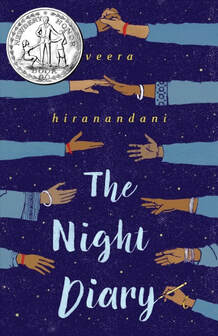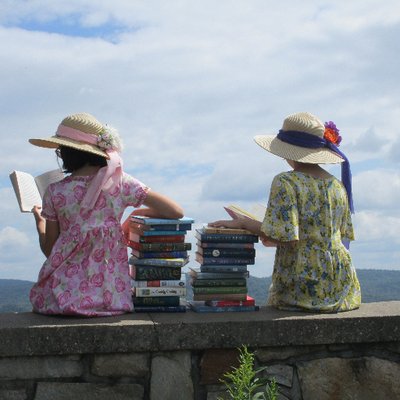
On her twelfth birthday, Nisha receives her first diary--a beautiful book where she feels she can record all of her thoughts and wonderings. She struggles to speak in front of anyone other than her family, especially her twin brother Amil, or Kazi, her family's beloved cook, who gave her the notebook. But when she writes, words flow onto the page, telling the story of the sudden changes which have begun in the world around her.
India has been freed from British rule, but in the summer of 1947, things only seem to be getting more complicated. Before, it didn't seem to matter what religion people were, but suddenly there is talk of India becoming two countries--one for Muslims and one for Sikhs, Hindus, and all other Indians. Everyone is taking sides, from the country's leaders to the students at Nisha and Amil's schools. But the only side Nisha wants to be on is her family's--Amil, Kazi, Papa, and Dadi, her grandmother.
Dadi and Papa are Hindu. Kazi is Muslim, and so was Nisha's mother, who died when she and Amil were born. So where in this new world does Nisha belong?
As tensions escalate and violence begins to break out in their neighborhood, Dadi, Papa, Nisha and Amil escape and begin the long journey away from what is now Pakistan, away from their Kazi and their bungalow and everything Nisha and Amil have ever known. They cross the desert to what is now the new India on foot, desperate for water and facing the growing tensions between refugees of all religions, escaping their old homes to places they have never seen. They find hardship and danger on their road, people filled with cruelty and some who have lost everything. But there is also unexpected kindness in those they encounter, and the hope for a better future.
Written in a series of letters to her mother, Nisha's journey is sometimes heartbreaking yet ultimately hopeful, and although it's historical, it explores many issues which are still relevant today. I don't always prefer reading books written in a diary format--it can be difficult to immerse oneself in the story--but I loved the way that Veera Hiranandani weaves the story through Nisha's letters to a mother she never really met. The relationships within her family are believably imperfect, yet the relatively small cast of characters clearly truly care about one another, and the harsh journey they make together helps to bring them closer together. The story also explores a piece of history that I can't believe I didn't know more about--according to the Author's Note, the journey in The Night Diary "is the largest mass migration in history." Although the story itself is fictional, it is inspired by the journey made by the author's father when he was young, and her vivid details and descriptions bring Nisha's world to life. The Night Diary is written for a middle-grade audience, but older readers will enjoy it as well (though they may find the ending slightly too happy to be completely realistic), and they may be inspired to learn more about the historical events it describes. Overall, I would recommend The Night Diary to readers ages ten and up.



 RSS Feed
RSS Feed
